
The Mousetrap
Where the two rounds of the Paycheck Protection Program (PPP) were a stopgap for many struggling restaurants, the Restaurant Revitalization Fund (RRF) was supposed to be a godsend. And yet, as soon as the application portal opened, the great promise of recovering lost revenue was rife with problems and lawsuits. We gathered three operators—Breezy Sanchez, co-owner of Amethyst Coffee Company in Denver; Yoseph Assefa, co-owner of Konjo Ethiopian Food in Edgewater; and Casey Easton, owner of Food Lab in Boulder—to discuss the RRF’s many twists and turns and the complicated outcome. As a note, Amethyst Coffee received funds, Konjo Ethiopian did not because of a technicality, and Food Lab was caught in bureaucratic limbo and ultimately had the promised funds rescinded. This is an edited transcript of our conversation. —Edited by Amy Antonation and Amanda M. Faison.
DiningOut: How did you find the application process and what was your impression of the RRF prior to it actually being distributed?
Breezy Sanchez: I knew about this swirly, ethereal thing called the RRF. I knew this was a thing, but I didn’t know how to find it. It wasn’t until my friend texted me a link to it that I found it…. I’d say RRF is along the same lines as the PPP. It becomes the number-one biggest priority, and it’s something you have to devote nearly 100 percent of your attention to. It’s nerve wracking because you have to work so quickly. In the back of your mind, it’s like, this is a race. If I don’t get my paperwork in, I might not get funds. If I don’t get funds, I am going to go out of business. To have that pressure is really intense, especially if you’re a small business owner that doesn’t have a lot of staff.
Yoseph Assefa: When [the RRF] opened up, we were excited. Leading up to it, I didn’t have any negative outlooks because PPP worked pretty well. Even though we didn’t get a second round of PPP, at least I understood why. [ED: Because of Assefa and business partner Fetien Gebre-Michael’s ingenuity during the shutdown combined with a November 16, 2019 opening, Konjo only showed an 18 percent loss over the qualifying period; the minimum requirement to receive funds was 25 percent revenue loss.] I didn’t have any question that we were going to get RRF. I assumed that because we were affected and there was a lot of money out there. It was a weird technical issue that caused a delay. They didn’t have a good answer to our situation. They put us on the back burner, and by the time they got to our application they ran out of funds.
Casey Easton: The application process was really simple. It probably was for most of us. I’ve done all the applications for funding and I have the numbers. You went on the portal a week ahead to see what you needed. The first 21 days were set aside for women and minorities—yes! I went in right away, filled everything out, and it said, “The website is overwhelmed but you’re still in order and it’ll go through in the next couple hours.”
DO: Did you receive funds?
BS: We did, yes. We were very lucky…We got an email that said, “You’ve been funded.” It was kind of one of those…like, OK, is this real? Is this a scam email? It wasn’t until there were actual funds in the bank account that I was like, “Oh, my god.” That was a huge sigh of relief.
YA: We did not get the funds. Ours was a very interesting situation. We opened our restaurant November 16, 2019. The issue we ran into was they wanted data for the last quarter of 2019 or first quarter of 2020 to compare. We didn’t have a full quarter in 2019. There was a lot of time wasted because we were waiting to get direction. Will you use the 44 days instead of the full quarter to compare sales? There was no direct answer. Using 2020 numbers didn’t work because our numbers were completely skewed because we closed in March. Very unfortunate, we were really depending on that money.
CE: They took down the portal but I took screenshots—it said, “Your application has been submitted, application is in review.” Next: “Application awarded.” Next one: “Payment sent.” I thought, “Finally something good in this year!”… I ran into Bobby [Stuckey] and said, “Thanks for all your work [on the Independent Restaurant Coalition].” He said, “Oh, there’s been a lot of drama. I’m glad you got the money. We’re gonna get sued.” Will and Coral [Frischkorn, of Boulder’s Cured] had gotten money, too. I asked them, “Oh, you got it, too?” They said, “Yes, we already got it in our bank account.” I was like, uh, that’s a crappy feeling—not that they got it, but that they already had the money and mine still said, “Payment sent.” I went home and looked [at the portal]: It said, “If your bank wasn’t verified, we need to verify.” I’m like, OK, they have to manually do that. I kept looking, and three weeks later it still said, “Payment sent.” I sent a message and got a message back saying, “We’re working on some stuff; you’ll be notified shortly.” I was like, “Oh, god.” Four to five weeks later I got the official email: “We’ve been sued and your money has been rescinded.” Even if I’d been denied the money, it would have been better. But when the government says your money has been sent…. Everything was in process, but when that lawsuit went through, everything just froze.

DO: We’ve heard the RRF described as a Survivor-esque situation where somebody wins a challenge and they go off and get a shower and a lobster roll and they come back and say, “It was great! I had a lobster roll and a shower!” and everyone’s like, “Ehhhhhhh….” How do you approach this with other operators? Is there awkwardness surrounding the questions of who got RRF and who didn’t?
CE: I’m pretty open talking about whether I got it or not. It’s not other operators’ fault [if they received funds]. It was open to whoever. People applied, people got it or they didn’t get it. If they were going to point fingers at anyone—well, this whole thing got passed. It got OK’d by Congress and then to turn around and get countersued…that’s not my problem. I can’t turn around to the government and tell them I’m not gonna pay my taxes because I got sued this year.
BS: I think Amethyst as a company is pretty transparent in general. Who we are, what we believe, any question you want to ask me about, I’ll tell you right now. For the most part, every person I’ve talked to about receiving funds is so supportive and I think that’s all because we know this level of suffering we’re all in. So it’s like, “Oh, dope. That’s amazing.” They also know, yes, it’s really great that you got that, but everybody knows it’s such a short-term, small solution. [Survivor] is such a good way to put it. It is one night I got to take a hot shower and eat a hot meal, and then I got back in the game. It’s not like I fully got out of this hell that everybody is in.
YA: I pretty much avoid the conversation. I don’t want to have the conversation. It’s not other people’s fault—they did what they did. I’m looking for other funds out there, and asking what I can do going forward, what should I do differently, and what did I do wrong?
DO: If you got the funds, how did you (or how would you) spend the money?
BS: With the RRF and PPP, I’ll be real: 90 percent of it goes to my landlord for rent. So I know that I’m very fortunate and grateful, but there’s definitely a part of me that’s like, fuck, dude. Fuck that. This is just a big bailout for these landlords and there are thousands and thousands of restaurants that are really suffering. I will say within that 90 percent is also taxes. We pay a lot of taxes from that. The last chunk goes straight to payroll.
YA: For us it would go to developing our staff. Right away we would want to pay staff more and give more benefits so we can stabilize our team. We also have stuff we need to get caught up on: We have some tax stuff on a payment plan, there’s equipment stuff we have to pay off. There might be a small percentage we’d hold on to but…the money would go back into the market really quickly. Like for me, I haven’t been on payroll for a long time. I’m not there every day; we chose to give staff a higher salary for those who will be there every day. Some of it might go to putting me back on payroll.
CE: [When I thought I had received the funds] the only thing I spent the money on was a new website. I know a lot of places that went out and spent money after they saw payment had been sent. I heard of places taking a week off and paying everybody, because we all need that now. That and back-paying their landlords with the money they thought they were going to get.
DO: What do you think was the biggest success of the RRF, if there was one?
BS: (Long pause) I would say being able to give some relief to some percentage of these 100,000 [businesses] that received it. I don’t think it’s generally a big relief to a lot of the corporations that got it. It would have been great if I could confidently say that 100,000 of those were small businesses that got it and needed help. It was a relief that for six weeks my business partner and I got some help. It was a relief knowing for that amount of time I was able to employ the lovely and amazing staff of mine for another few months. So in those small ways, that was a relief. But I will still say that there still need to be bigger systematic changes. I hesitate to say that because I don’t want to sound ungrateful for this thing. I am very much grateful for it because it is keeping some people housed and fed, because I am able to pay them a living wage. But it’s this fine line of knowing that it helps, but it’s not enough.

DO: Should it be refilled?
YA: I don’t know if [the government] has the momentum to get that passed. There’s so much pushback. I think they had one shot to get through as much as they could, but I don’t know if they’ll be able to refill it. With Delta, maybe they have to because we’re going back [to high COVID numbers]. But I think the people who sued already, and the politicians who agree with those people, won’t allow it to happen.
BS: I want it to be refilled a million times. But what I ultimately want is bigger changes. I’m essentially exhausted, and I’m not the only one, of seeing big bailouts for landlords who don’t give two shits about workers and for banks to somehow always get their money at the cost—again—of workers. So if there’s another round of RRF to help the workers, yeah, I’m for that. If there’s another round of RRF where another $21 million is going to go to Hilton, I won’t apply.
CE: I think it should be, but I don’t think it will be…. PPP was helpful but those funds are gone. This is still happening. You want us to do all this stuff [like social distancing and capacity restrictions] but there’s no help on the other end. It’s been whiplash. People don’t want to work for the industry anymore because it’s impossible. The PPP helped our business, but it didn’t help us personally. I spent probably $20,000 a month last year of my business savings and PPP wasn’t for the owners. You had to spend it on certain things. Now I’m paying my accountant god knows how much to put this all together. I think they should refill it because they left out a third of the people.
DO: What do you think should have been done better?
CE: You [the government] told me the money was coming, you pushed it through, you said it was all good. It’s not [another person’s] fault that he got money and I didn’t. You did it wrong, so fix it.
YA: They had a very strict criteria for funds, which is understandable, but I think there should have been a process in place for situations like ours. I think what should have happened is that if $100,000 was going to go to our business, those funds should have been allocated to [escrow] and when we got that resolved, the money would go to those businesses. I’m sure other people were affected by [issues] similar to mine.
BS: I think it was about 100,000 restaurants that got funded in the RRF—what does that leave, 240,000 that didn’t? It just proves there’s not enough assistance for everybody. I think the way to help that be a little more equitable would be to prioritize the actual, true small businesses.
DO: During the height of 2020 shutdowns, people were saying 80 percent of restaurants were going to go out of business. Will this next year be when we see the closures because they just can’t hang on?
CE: I think so. I think people are getting pushed to the brink. For the first time in six years I was like, I can’t do this anymore. People are getting pushed constantly. At some point the bank accounts will catch up with them, if they haven’t already. People aren’t going out to eat as much. I keep hearing, “I went to Corrida and there’s a 24 percent service charge!”… Well, if you don’t like it, call Congress! On the flip side, I’ve gotten really bad service from restaurants. I grasp what’s going on, others don’t. But at some point, there’s no excuse.
YA: We’re going into the slow months. What do we need to do to make it to April of next year? There’s a dramatic drop in business. We have a food truck that helps our numbers but it’s out of commission during the winter. I think we’ll be OK because we’re inside a food hall that has a lot of space. I’m definitely hoping for help not from the government but from nonprofits that support businesses like us. And the private sector, too—I’m looking at other options out there. I hope people will start noticing that the government did what it could and others start to step in.
BS: [Small businesses] are the ones that will be the first to go and that people will be most sad about, right? It’s because they are the people who are bringing the culture, the community to the city, and they simply can’t do it anymore. I remember when Beet Box Bakery closed up shop. I think that is my biggest heartbreak of COVID loss. I was just talking to a coworker yesterday about it and how, god, they really got out at the right time. I remember thinking they had the foresight to be like, “Nope, this is going to last a long time and be really hard on the workers.”
Talk to us! Email your experiences (and thoughts, opinions, and questions—anything, really) to askus@diningout.com.



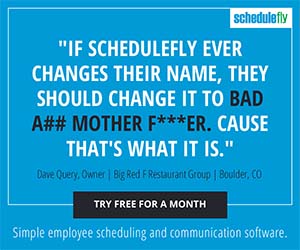
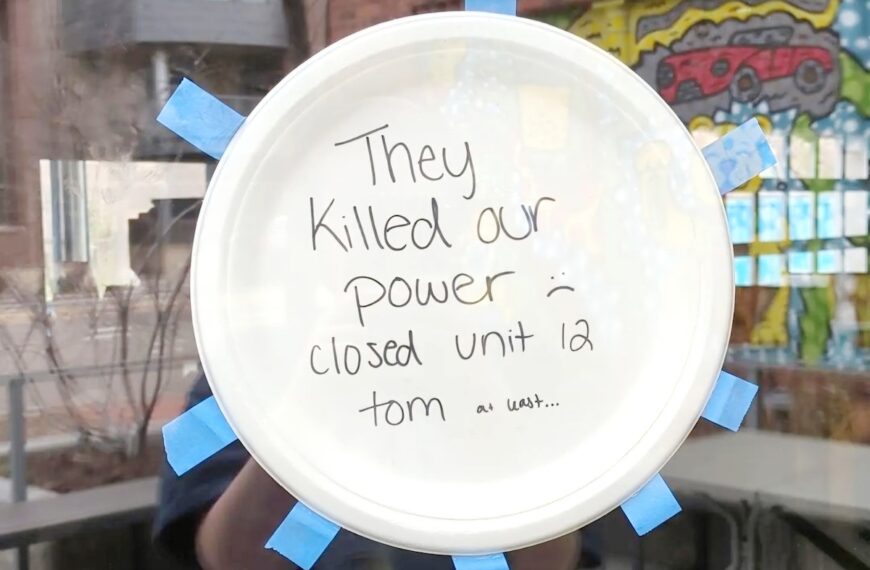
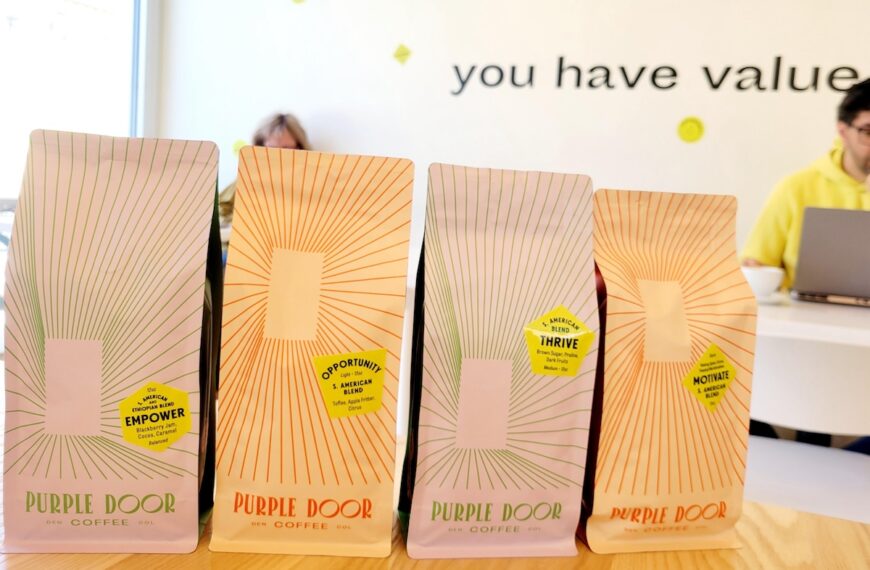
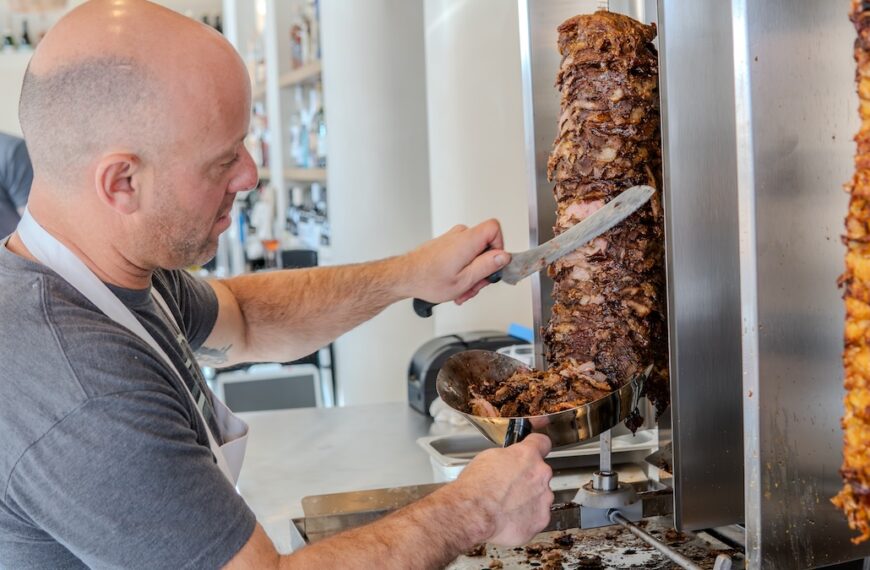
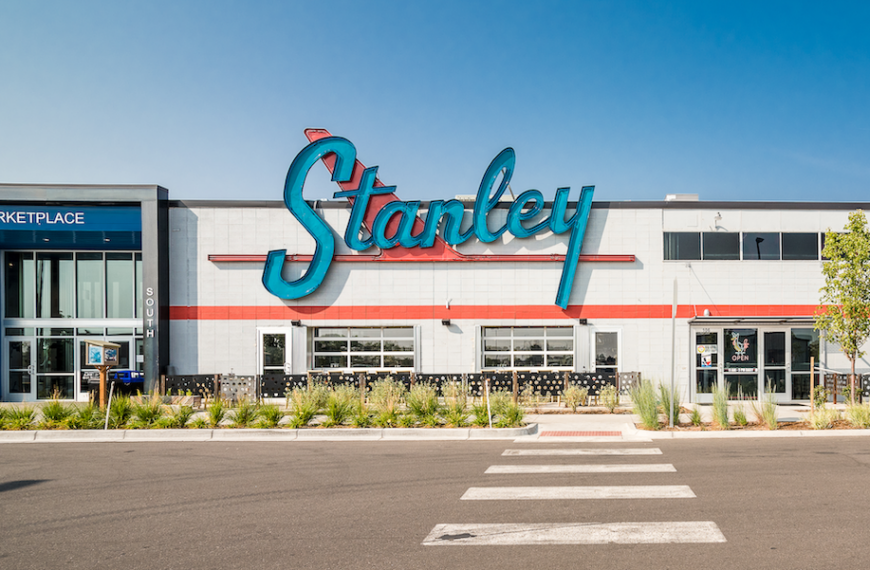



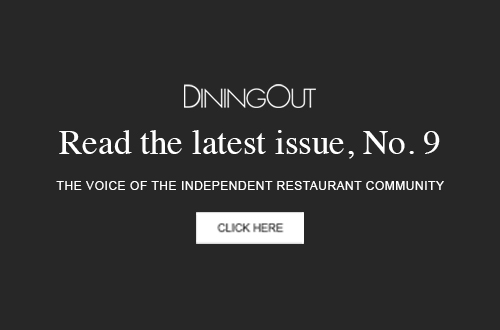
Comments are closed.